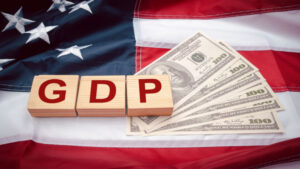A telling news story caught my eye this morning: $7.3 billion flowed into the SPDR S&P 500 ETF Trust (SPY). That was the biggest inflow in nearly two and a half years, with the prior high coming after the November 2020 announcement of a Covid vaccine. It was not an isolated phenomenon – a wide range of equity and bond ETFs saw inflows yesterday. What surprised me was not the flows per se, but their magnitude.
The announcements of relief packages for struggling First Republic (FRC) and Credit Suisse (CS) led to a big rally in US stocks. The S&P 500 Index (SPX) rose about 1.75 and the NASDAQ 100 (NDX) jumped more than 2.5%. The intraday moves were even larger, since both indices were selling off for the first hour of the day. There is no question that investors should have reacted positively to news that appears to have stemmed the global banking crisis, at least for now. But a stampede seems excessive.
The ferocity of the inflows tells us that investors continue to have more fear of missing a market bounce than they fear the potential for the banking crisis to metastasize. FOMO, or fear of missing out, is mis-named. It’s about greed, not actual fear. Thanks to recency bias, investors are more likely to remember the “buy-the-dip” lesson that was reinforced during most of the last decade — especially 2020-21 – than the last banking crisis in 2007-2009.
Banking crises are like roach infestations. If you see one roach, you can reasonably assume that there are many more that are hiding nearby. At the beginning of last week, we learned that Silvergate (SI) would be winding down their operations. By the end of the week, Silicon Valley Bank (SIVB) had failed. And over the weekend, regulators shut down Signature Bank (SBNY). It was understandable why investors became very skittish about owning stocks and bonds in regional banks. We noted that people had become much more concerned with return OF capital rather than return ON capital. Crises have a way of doing that.
If it were obvious that the banking crisis was well and truly behind us, then yesterday’s ETF stampede would make perfect sense. But today’s activity tells us that is far from the case. FRC and CS are both down substantially today along with several of their peers. Even if we can confidently believe that all deposits are now implicitly guaranteed, even those above the $250,000 FDIC insurance cap, there must be immense pressure on the CFOs of companies large and small to reduce their exposure to small and mid-size banks. This may be especially acute ahead of the end of the quarter in two weeks.
It is encouraging to see that regulators are actively seeking a solution to the troubles in the banking system. But they are using the financial equivalent of bandages rather than the strong medicine of massive monetary accommodation. Even as the Federal Reserve took on billions in deposits, which is modestly expansionary, they continued to reduce the securities holdings on their balance sheet and are considered to have a 70% chance of hiking rates next week. Oh, and the ECB raised rates by 50 basis points yesterday.
So, we’re neither truly done with the banking crisis nor clear signals of an end to a restrictive monetary policy regime. There was enough good news to raise investors’ spirits yesterday, but they didn’t seem sufficient to justify sort of inflows that accompany a secular turnaround. The extra justification came from another day when FOMO outweighed actual fear.
Disclosure: Interactive Brokers
The analysis in this material is provided for information only and is not and should not be construed as an offer to sell or the solicitation of an offer to buy any security. To the extent that this material discusses general market activity, industry or sector trends or other broad-based economic or political conditions, it should not be construed as research or investment advice. To the extent that it includes references to specific securities, commodities, currencies, or other instruments, those references do not constitute a recommendation by IBKR to buy, sell or hold such investments. This material does not and is not intended to take into account the particular financial conditions, investment objectives or requirements of individual customers. Before acting on this material, you should consider whether it is suitable for your particular circumstances and, as necessary, seek professional advice.
The views and opinions expressed herein are those of the author and do not necessarily reflect the views of Interactive Brokers, its affiliates, or its employees.
Disclosure: ETFs
Any discussion or mention of an ETF is not to be construed as recommendation, promotion or solicitation. All investors should review and consider associated investment risks, charges and expenses of the investment company or fund prior to investing. Before acting on this material, you should consider whether it is suitable for your particular circumstances and, as necessary, seek professional advice.






















